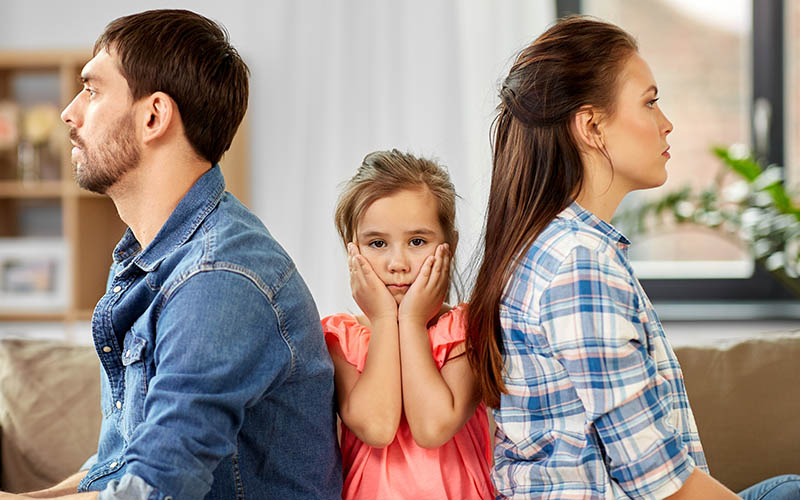It’s hard enough to decide to get divorced. You’ve finished arguing and decided the marriage is unsalvageable. Many parents experience relief after ending hours, days, or months of stressful and aggravating experiences. Ending a bad relationship can be uplifting as you consider the next chapter of your life. But then you start to think about the implications of your choice, namely what will happen to your children.
“How do I share the news with my kids?” you may be wondering. While this is not a pleasant conversation topic, there are ways to make it more bearable, understandable, and maybe even a little encouraging. Depending on your child’s age and maturity level, the way you present this topic will vary, but the message your child internalizes should be consistent: “My parents no longer care for each other the way they did before, but their love for me will not change.”
So how does one say this in a way that will be helpful and not alienate their child?
Be Honest
Many children experience their parents arguing in secret, hidden in a room out of sight, but maybe still within hearing range. Children wonder, or assume, about what is happening and how it will affect them. Unfortunately, without much information from their parents, they become worried about the future and develop their own predictions. You may think you are helping your child by privately quarreling, but when they are not privy to what’s occurring or know what to expect, this can be even more upsetting later. And if you try to hide the divorce as well, your child will be even more confused, upset, and distrustful. Some children may even blame themselves and wondering what they could have done better. This can lead to anxiety, self-doubt, low self-confidence, anger, and depression.
In the days leading up to your decision to divorce, try not to argue “in private” when children are home and possibly listening. Plan time when you can be alone or meet with a counselor to discuss the dissolution of the marriage. When you decide to get divorced, explain to your children as soon as possible, in words they can understand. This could be as simple as “This is not your fault. We just do not get along anymore.”
Provide as Much Information as Possible
Children will then immediately start to wonder about what will happen to them as their parents move apart. You can help ease their worry about what’s going to happen next by sharing relevant details, such as the parenting plan, if established, including with whom children will primarily reside, how much time they will be spending with each parent, where both parents will live, and the parenting schedule, including holidays and weekends. Parents can choose to ask for their children’s input in this planning if they feel it is appropriate. Ultimately, including your child in the decision-making or sharing details about the next stages will help build feelings of trust and security for your child.
Allow Your Child to Grieve
While you may feel relief, this change in circumstance is a loss for your child. Knowing that you are an outlet and a resource can be helpful as questions and feelings arise. Even expressions of anger can be a healthy way to deal with strong emotions as your child navigates their new situation. Remember that they did not choose this, but you make it easier for them to manage by fostering conversation, discussion, and openness, as well as empathizing with them about their experience.
Offer Hope and Love
You and your child may not feel positive about the divorce. However, as you talk more about the future, you can instill openness to change and hope for a better time. You can now be a happier parent who no longer carries the bitterness of a broken relationship. Instead of arguing, you can enjoy quality time with your child. Talk about positive experiences you can each have with your child and how you will continue to cherish them. When you focus on the unchanging and loving bond you will continue to have with your child, they will know that this is the one part of the relationship they can count on to stay the same.
Get Support for Your Child
To help your child cope with the divorce process, consider connecting your child with a divorce therapist. Just like you are going through strong emotions in the divorce process, your child most likely is going to feel strong emotions as well. In certain cases, your child might feel as though they are losing a parent. The weight of divorce and the plethora of emotions associated with divorce are not things that can be swept under the rug for you or your child. Children’s counseling for divorce will help your child recognize and process their emotions. Contact Courageous Kids Counseling for more information on children’s divorce counseling. We want to help you and your family through this process.



